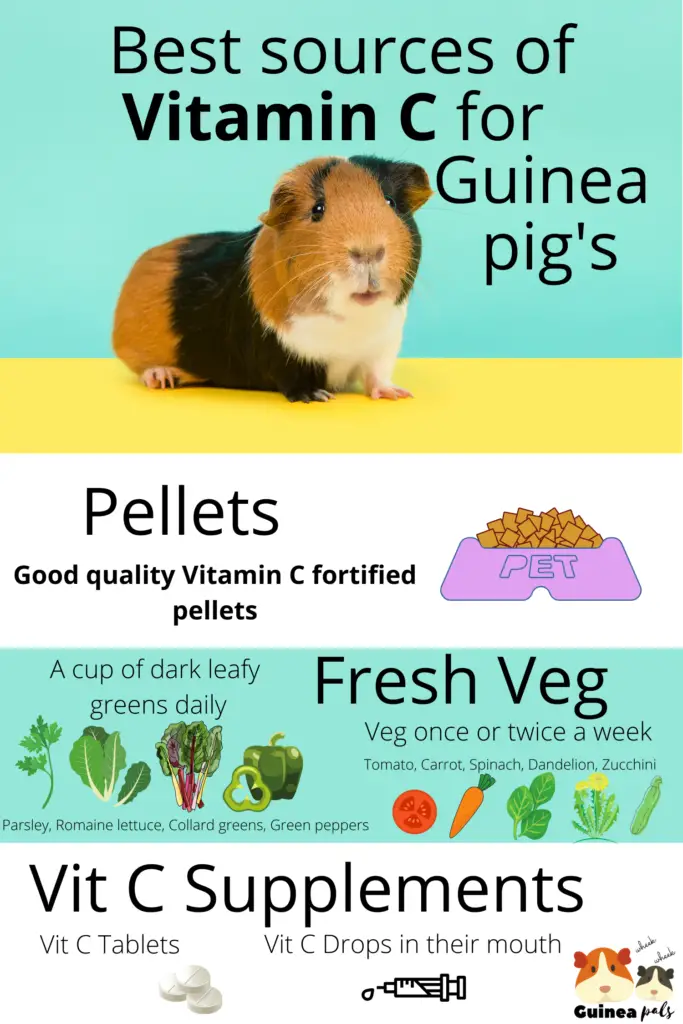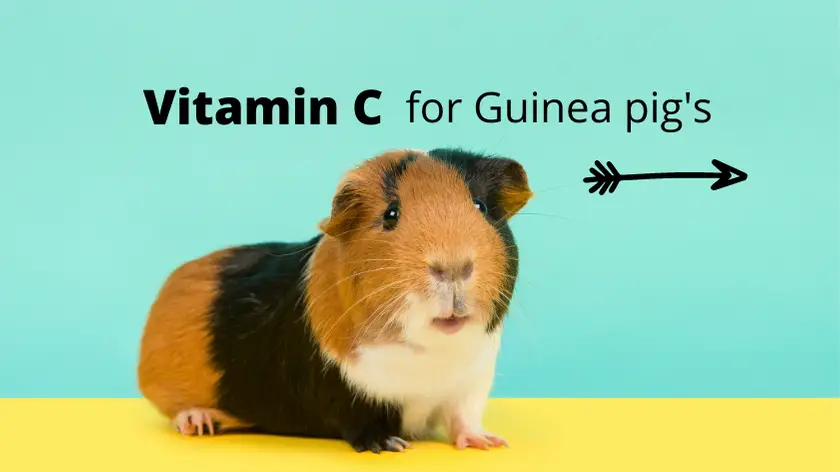Did you know that a lack of vitamin C in guinea pigs puts them at risk for scurvy?
Guinea pigs (and some primates, including humans) can’t produce or store their own Vitamin C, so they need to get it via their daily diet.
What is Scurvy?
Scurvy is a disease that is caused by a lack of Vitamin C, it causes blood vessels to be fragile and may cause bleeding gums & sores or even internal bleeding. More symptoms could include lethargy, painful joints, poor tooth development, discharge from eyes & nose and weakness.
It can be fatal if left untreated. If you suspect that your guinea pig might have a serious lack of vitamin C or even Scurvy, then contact your vet immediately.
Vitamin C is vitally important to keep guinea pigs healthy.
What are the best sources of Vitamin C for guinea pigs?

1. Pellets which are vitamin C enriched
Good quality guinea pig pellets are fortified with vitamin C.
Vitamin C in pellets however degrades quickly, so follow the directions on the bag, keep it in an airtight container and make sure you feed it to them before the use by date.
2. Fresh Vegetables and Fruit
A cup of dark leafy greens and veg daily are great sources of vitamin C for your guinea pigs:
- green peppers
- collard greens
- romaine lettuce
- parsley
- kale
Feed a variety of veg that are suitable once or twice a week:
- tomatoes (the fruit but not the leaves or stems)
- spinach
- Cabbage
- Red and yellow peppers
- Dandelion greens
- Carrots
- Zucchini
Fruit are also a good source of vitamin C, but they also contain a lot of sugar and should only be given now and then as a treat:
- Apples
- Oranges
- Strawberries
- Bananas
- Blueberries
- Guava
- Kiwifruit
3. Vitamin C supplements
Most pet stores sell vitamin C supplements for guinea pigs in the form of tablets or drops.
It is not advised to use the drops that you have to add to their water supply as vitamin C degrades very rapidly in water and you wouldn’t know how much they ingested. It also alters the taste of the water and you run the risk that they will dislike the taste and not drink enough water.
The better options would be the vitamin C in tablet form that you can offer them as treats, or crumble over their food, or the kind of drops that can be administered with a syringe straight into your guinea pig’s mouth.
Side note: Although hay doesn’t really contain vitamin C, it should still be the staple of any guinea pig’s diet. They require it to maintain a good functioning digestive system and limit the growth of their teeth.
